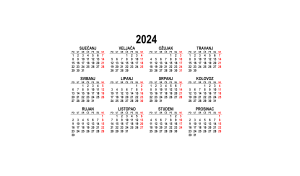Answering interview questions is not easy. Some questions have an obvious meaning and their goal is to clarify the candidate’s work history to the employer. However, trick questions are often asked at a job interview that have a hidden meaning.
Candidates are worried about the trick questions when it comes to job interview questions because consultants recommend their use to employers. Below is a guide to 15 trick questions that can confuse candidates during a job interview.
Our AI matching system does not ask you trick questions but gives you the best recommendations!
Trick questions at a job interview: How would you describe yourself in one word?
This is a very tricky question, especially when it comes up among the first questions in a job interview. Unfortunately, the employer wants to use it to reduce the candidate to one word. This is why you should do two things when preparing for a job interview.
The first thing is to carefully study the job ad and the employer. You should try to understand what the employer is looking for from the new employee. For example, if it is a job in a contact center, he wants to hear that the candidate is a communicative person.
Another thing is to think about your resume. Each candidate should be able to best describe their way of working in a few words. The chosen words should be supported by examples from previous work experience, and it is much more important to be able to argue why a certain trait would be useful for the position for which the candidate applied.
Trick questions at a job interview: What makes this job different from others you’ve applied for?
At first glance, this question aims to see what the candidate thinks about the employer. This is true, but the answer to this question also shows the employer how active the candidate is in looking for a job and whether he has applied for another position.
A person who is actively looking for a job will almost certainly not apply for only one position, so it is wrong to lie to an employer that a candidate has only applied for that position. Even if this is true, it is a very strange answer and makes sense only in cases where the person has just started the job search or it is a very specialist position.
It must not be forgotten that the employer can also pay attention to how the candidate expresses himself about other potential employers.
It is best to answer this question as honestly as possible and mention that the person has applied for a job in several other companies, but has not yet decided which of them they will choose for the further development of their career. This answer is worded neutrally, does not reveal too many details, and lets the employer know that the candidate is also attractive to other companies.
Trick questions at a job interview: Tell us something about yourself.
Why is this a trick question? Mostly because of how inexperienced people present themselves. Namely, it is a common mistake when introducing yourself to start talking about your private life, which the employer should not be interested in.
However, they can conclude from such an answer that the candidate thinks about themselves primarily through his private, not professional, identity. Therefore, when introducing themselves, candidates should talk exclusively about their careers and the professional skills they offer.
Trick questions at a job interview: Why do you want to leave your current job?
As already mentioned in our guide to the wrong answers to job interview questions, this question is very easy to get wrong. The most important thing is for the candidate to show that no problem with them causes them to change jobs frequently.
The trick in the response is to point out that the candidate is looking for a more challenging job or one that better matches their career goals, rather than criticizing the current employer.
Trick questions at a job interview: Does your employer know you’re interviewing for a job?
This question is among the most difficult questions in a job interview. A new employer will want to know if the candidate’s priority is the current rather than the potential job because they will behave similarly in the new workplace.
It is best to give a neutral and honest answer to this question. If the candidate says that his current employer knows that they are looking for a new job, but this is not true, they will be in trouble if the potential employer inquires with the current employer.
Examples of a good answer to this question are that the candidate is exploring possible changes in their working career, but has not yet informed the current employer about this because they have not yet made a final decision.
The candidate should make an appointment for the interview outside of their current working hours or take a day off for the interview, otherwise, they will turn out to be a very irresponsible and disloyal worker.
If the candidate is asked what their current employer would say if they knew they were interviewing, the best thing to say is that their current boss doesn’t care what employees do outside of work hours and focuses on the business results they achieve.
Trick questions at a job interview: If you could work for anyone, who would you work for?
Most employees will be tempted to say that they would like to work for a large company that is known for taking good care of its employees and its success in the market, such as Alphabet.
The trick in this question is that it is difficult to tell whether the employer wants to hear from the candidate that they want to work for him. It is difficult to be honest and convincingly explain why a person would work for the company over all others because both the candidate and the employer know that there are more reputable companies.
The best approach is for the candidate to say they would work for a reputable company that shares characteristics with the company the candidate is applying for. For example, a candidate can mention that he would work for Alphabet because they invest in employee education in case the position they applied for offers opportunities for further training. In this way, the candidate will appear sincere, and at the same time show that they are really interested in working in the company to which they applied.
Trick questions at a job interview: What type of person do you get along with the worst?
This is one of the questions mentioned in the guide to the most difficult job interview questions. The employer actually wants to find out with this question whether the candidate is a person prone to conflicts and how he resolves them.
As recommended in our guide to the toughest questions, candidates should answer this question so that they get along the worst with people who don’t follow through on their commitments. With this, candidates will show that they are responsible persons and that they do not tolerate the work inefficiency of others.
Trick questions at a job interview: Why wouldn’t someone want to work with you?
As with the previously mentioned question, the employer wants to determine what the candidate’s personality is like and whether it is difficult to work with them. Most people’s first thought will be to answer that they cannot think of any reason, but such an answer will only tell the employer that the person is not thinking about the question and themselves or does not want to give an honest answer.
As usual, when answering questions at job interviews, you should be positive and constructive. It is good if it is possible to emphasize that the candidate has not yet had to work in companies where bad interpersonal relations prevailed. However, some of the candidates have certainly worked in such companies and therefore left their workplace.
That’s why it’s best to point out some of your flaws that have positive aspects. For example, it is good if the candidate says that they set high standards for themselves or like to be very precise in their communication.
Trick questions at a job interview: What would you do if you won the lottery?
With this question, the employer wants to evaluate several things about the employee, especially their priorities in life, whether they are intrinsically or extrinsically motivated, and responsibility.
It is probably obvious to all candidates that they should not say that they would stop working and take early retirement. Wise forms of the answer to this question mention investing in yourself (like, for example, paying for specialist studies) or solving existing financial responsibilities (like buying an apartment or paying off a loan).
Some candidates may be tempted to say that they would start their own business. This answer can show ambition and enterprise, but it can also lead the employer to think that the candidate does not like to listen to the instructions of others and will not be loyal to the company. That’s why it’s best to keep this answer to yourself in most cases.
Trick questions at a job interview: Is money or job satisfaction more important to you?
Of course, most candidates will recognize that they should answer the question that job satisfaction is more important to them. This will show that they are intrinsically motivated and will not quickly look for another employer.
However, some employers may be too suspicious if candidates quickly answer that job satisfaction is more important to them. That is why it would be good to answer that it is important for them that their work achievements are recognized both financially and by their colleagues, but in the long term, satisfaction is more important to them.
Trick questions at a job interview: What did you do when you weren’t employed?
With this answer, it is crucial to avoid saying that the candidate did nothing special. The employer needs to know that the person continued to be active and work on themselves.
Therefore, good answers to this can be taking courses, being active in the community, or reading books. If the candidate took care of a family member, then this can also be mentioned, but with a note to emphasize the skills and qualities they acquired by taking care of another person. This does not mean things like making the bed, but rather developing sensitivity to the needs of others or time responsibility.
Trick questions at a job interview: Give an example when others did not listen to you.
Employers are generally interested in situations where the candidate managed to resolve a conflict or change something in the workplace, and people usually prepare for such questions. The question of when they failed to change something can confuse candidates and tell a lot to the employer.
Refused proposals may reflect unrealistic expectations, misunderstanding of the industry, impatience with the existing work hierarchy, and several other bad indicators. That’s why it’s best to give a prudent example of a refused proposal and a simple reason for why it was rejected.
For example, it is good to say that the proposal to launch an additional marketing campaign was not adopted because there was no budget for it. It is bad to say that the proposal to increase sales was not adopted because the management did not understand it, because it badmouths the previous employer.
If your job asked you to break the law, would you do it?
Candidates can assume that the employer wants an affirmative answer to this question. However, it is not good to answer this question in the affirmative, and especially not briefly.
The best answer is that the candidate would respect all official regulations and laws because violating them would expose the company to bigger problems. It is good to add that they would explore all ways to complete a certain task within the legal framework, and they would work overtime if necessary.
If you could have one superpower, which one would you choose?
With this question, the employer wants to find out honest information about the candidate’s personality and behavior. Therefore, when answering this question, it is good to choose answers that will speak in favor of some of the candidate’s skills.
Bad answers to this question are flight or strength. A person interested in flying or being strong probably wants to travel or be attractive to others, which are not things employers are interested in.
Good answers to the question are speed or mind reading. Speed will speak in favor of the fact that time efficiency and meeting deadlines are important to the candidate. Mind reading will indicate that the candidate thinks about how their behavior affects others and that interpersonal skills are important to them.
What if the employer shouts or is rude?
No one wants to be in a job interview where others are rude to them. Most likely, this is just a sign that the employer is bad.
However, there is also a small possibility that the candidates will be tested on how they behave under pressure. In that case, it is best to be calm and try not to be disturbed by the other person’s behavior. You should continue to calmly answer questions and look the other person in the eye, without showing that the candidate was affected by inappropriate behavior.
Conclusion
When answering unusual questions, care should be taken to give answers that can always be connected to the candidate’s strengths. Giving too many desirable answers should be avoided because the candidates will come across as disingenuous.
When employers ask trick questions, their goal is to get to know the candidate’s personality. That is why it is most important that candidates know themselves well and think about which characteristics they can best highlight.
Our AI matching system won’t confuse but will give you recommendations!
Author: Goran Mihelčić





